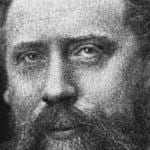It’s one of the most famous heavyweight debates in philosophy of all time on the question of God’s existence, Frederick Copleston (classical theism) vs. Bertrand Russel (atheism) in a 1948 BBC broadcast.
Copleston opens up with the cosmological argument (expressed specifically with the argument from contingency):
“in order to explain existence, we must come to a Being which contains within itself the reason for its own existence, that is to say, which cannot not exist”. Copleston defines God as the Necessary Being in which all contingent things depend; without God (Being itself), there could not be existence. If there are contingent beings, there must be a Necessary Being.”
Russell rejects the idea of a Necessary Being and “there is any particular meaning in calling other beings contingent” and asserts that “these phrases don’t for me have a significance except within a logic that I reject”. Russell asserts that “Necessary being” maybe a strong analytic proposition, but it need to be an actual reality (bringing up Leibniz’s separation of “truths of reason” vs. “truths of fact”).
Copleston asserts that by the principle of sufficient reason that contingent things require an explanation for their existence and tracing that explanation back to other contingent things is an infinite regress. If the all contingent things in the universe require a cause, then why wouldn’t the universe itself? Russell’s skepticism is rooted in “the whole concept of cause is one we derive from our observation of particular things” and that he sees ” no reason whatsoever to suppose that the total has any cause whatsoever.” He then clarifies that the universe need not be “its own cause”, but that the “concept of cause is not applicable to the total”. In short, Copleston has no warrant from reasoning from contingent causation to a Necessary. Just because parts of the system follow a certain causal chain, the total (the Universe or entirety of existent) need not. It’s here where Russell lays out his famous Brute Fact Universe: “I should say that the universe is just there, and that’s all”. When pushed by Copleston on the infinite regress of contingency and principle of sufficient reason requiring an intelligible explanation, he’s bullish that “the notion of the world having an explanation is a mistake” and he doesn’t “see why one should expect it to have….”
As Copleston pushes further, Russell clarifies that the question of the meaning of existence is ultimately meaningless.
Russell takes two key positions here:
- Brute Universe
- Denying the question has meaning
I’ve always been taken aback at the second position. Many philosophers label this the ultimate question. Even in my most skeptical moment, to label the question meaningless always seemed like a copout. Disdain for the question, or being uncomfortable with idea that infinite regression of contingent causes should not be cause for a quick dismissal. Much like theists with the problem of evil and suffering; denying the problem outright, rather than struggling with it always seemed like a curious move to me.
For the skeptic, I think promise exists not with stopping the question before it starts, but conceiving of metaphysical explanations that are not “God” as traditionally conceived by their theistic friends. Perhaps this wouldn’t lead to a strict materialism or traditionally conceived monotheism, but we need not fear.
Conformity to two-party systems of thought often miss the ocean of truth available in the middle.













